Over the years I have entered scores of competitions, from annual collections to one-off juried shows.There is always that hopefully expectation of having your work recognized as worthy, and the let down when the rejection silence comes as you are cut from the crowd.
Competitions are short lived, the annuals get eventually shelved, gallery shows only hang for a month before the next ‘in’ crowd is there, and sometimes not even your best work ends up representing your ‘face’ in these shows.
Given these ups and downs over the years, the true benefits from the competitions have not been the accolades of getting ‘into’ a certain competition, but the resulting spin off from all the hoops necessary to enter in the first place. Some of my greatest portfolio and career break throughs have come when I have thought about what I should create in order to try and land a spot in a certain show – find a way to present something new for myself artistically and create work which I am proud to state, ‘That is me’.
Here are fours aspects of competitions which can benefit you immensely even if you do not get ‘in’:
1. Meeting Deadlines. All competitions have deadlines and structuring a piece to be completed for that deadline is a way to help your creative time management. All commercial artists, including gallery artists, have hard deadlines they need to meet in order to be successful. Adding competition deadlines to that mix is a way to reenforce choices which bring about resolution to pieces which you may have been hesitant about, especially personal projects. Once you commit to entering that personal piece into a show, the clock begins ticking and decisions need to be made!
2. Pushing Boundaries. Many times for competitions I not only enter work I have executed in the normal course of business as a freelancer, but I also have an eye out for what new direction or challenge I can bring to my work to amplify the chances of ‘getting seen’ in competitions. I look for ways to paint my boat a slightly different color so that it is still me, but presenting a different approach to problem solving. This is not about reinventing yourself, but rather changing the surface veneer on how you present your visual solutions to the same genre.
3. Believing in Yourself. Entering work into a competition is also about making a statement to yourself that you are proud of this creation, and want the world to see what you have done! It is a way to stand behind your choices, build strength in your decisions, and add confidence to your game. It also helps others identify what you are truly passionate about with style and content, and thus are more likely to hire you for those traits. I tend to enter work and show pieces for which I would love to be ‘hired again’ to do and pursue work along a similar themes. It is how a true and passionate style gets born.
4. Sharing Goes Beyond the One Show. There are so many ways to place our art out there in the public forum, it is actually getting to be a bit difficult to know what really works to help along our careers. Trying to game a system and maximize ‘likes’ on platforms, misses the point that many commission can, and do, come out of ‘left field’. Meaning you can never plan and direct the process which results in someone new finding your art. The best thing to do with your newly created portfolio piece is to share it, and share it broadly. Enter another show with it, update your website portfolio, put it into the social media streams, share it into fan discussions, slap it on a new postcard, etc… When you are proud of a piece, it will likely never look ‘tired’ in your body of work throughout your career.
Enter shows, hope for the best, but first and foremost believe in your work!


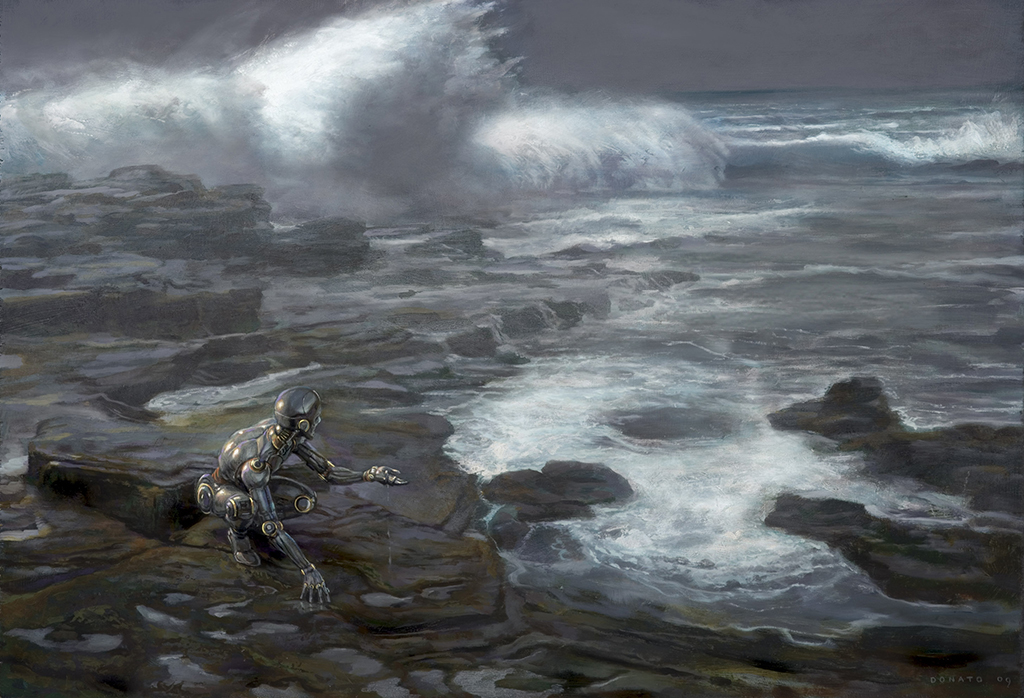
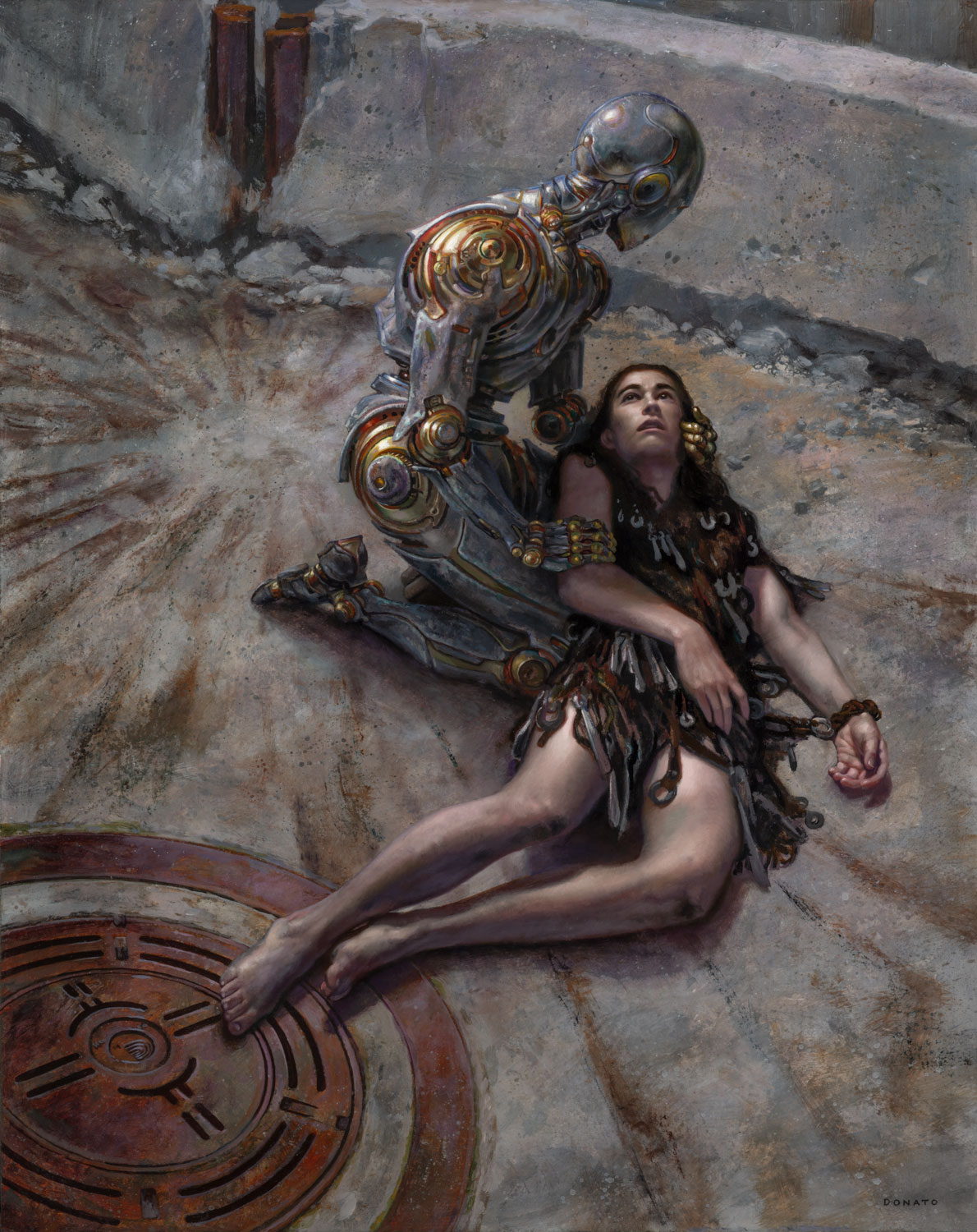
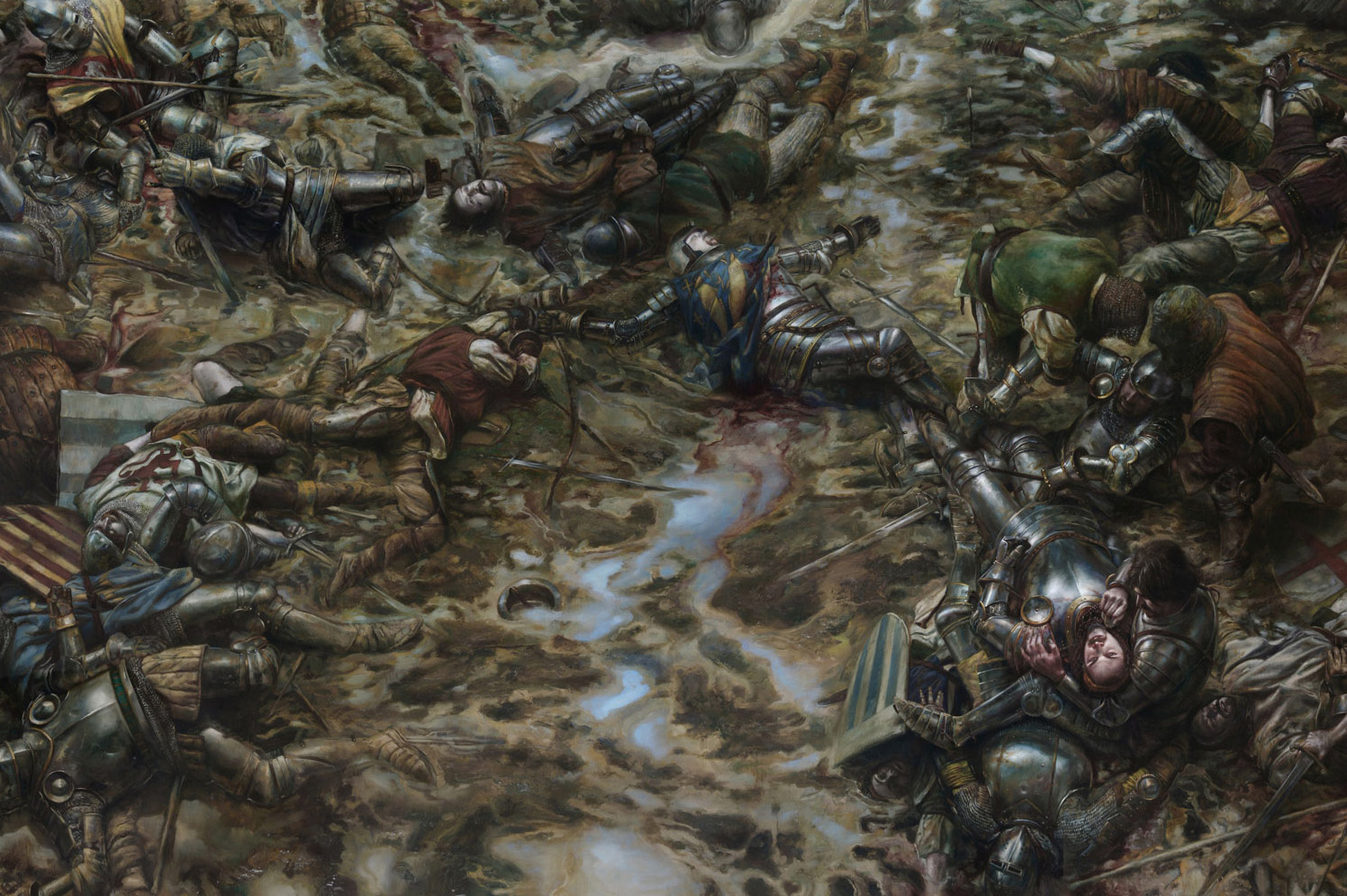
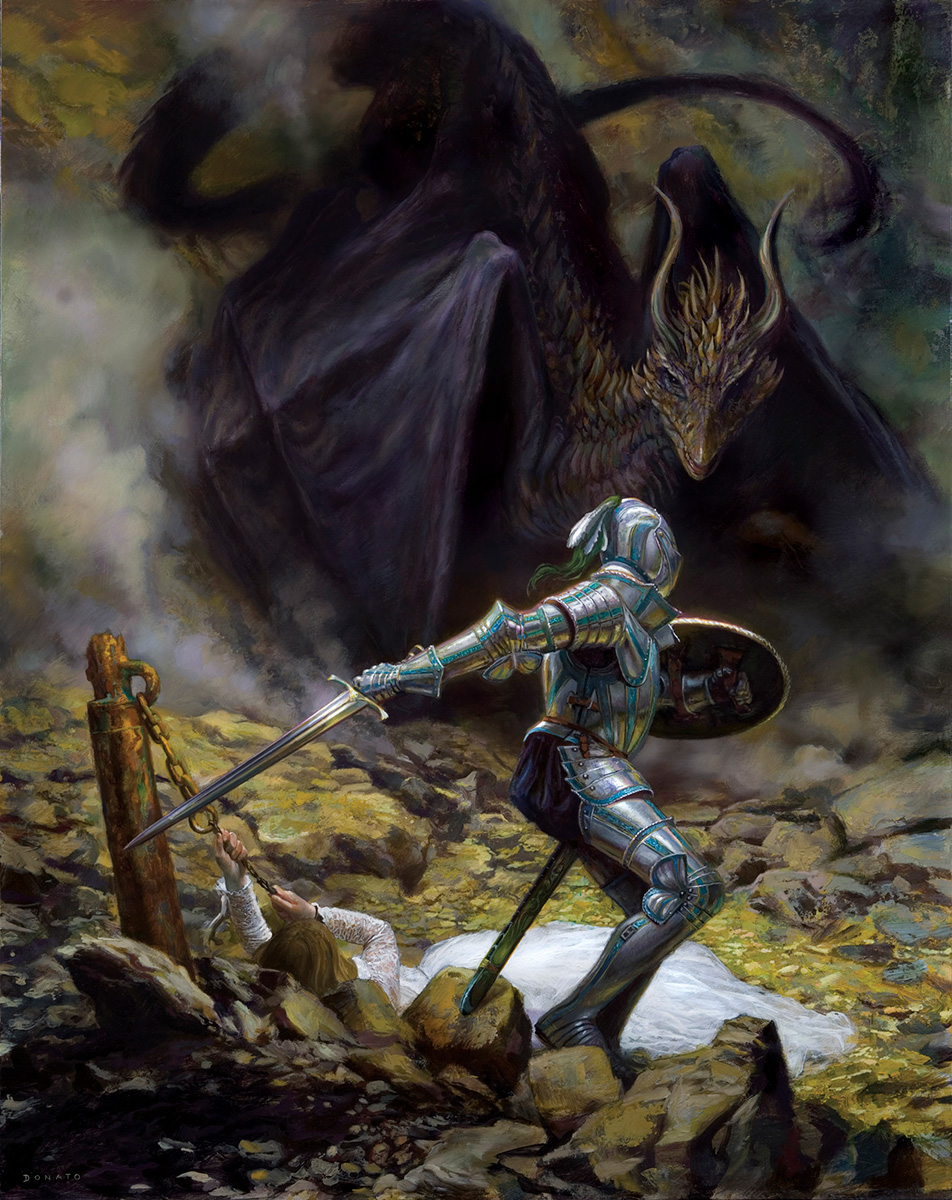
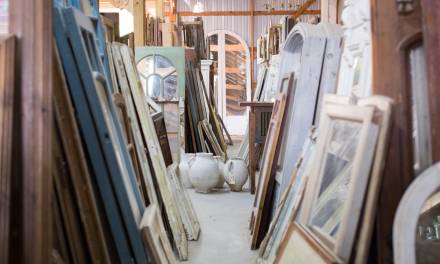
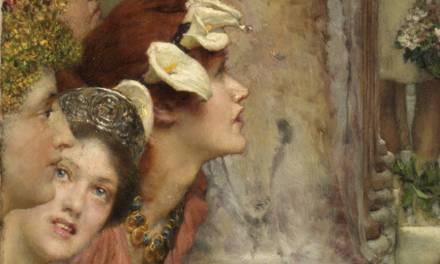
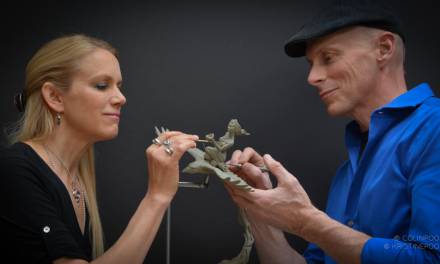
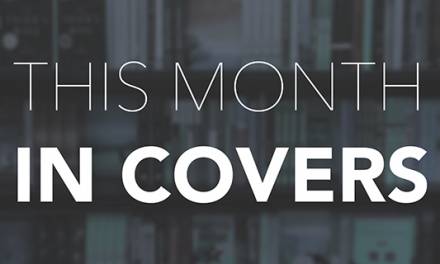
Donato, you’ve been rejected from shows or competitions? Are we talking about 13 year old Donato here or current Donato?
Yes, those three paintings above, some of the absolute best of my portfolio by FAR, are tagged with their show rejections.
Do you have any advice our guidance for what shows are out there? I see A LOT of open calls but I only know of two shows where genre work seems to be acceptable. One being, of course, Spectrum.